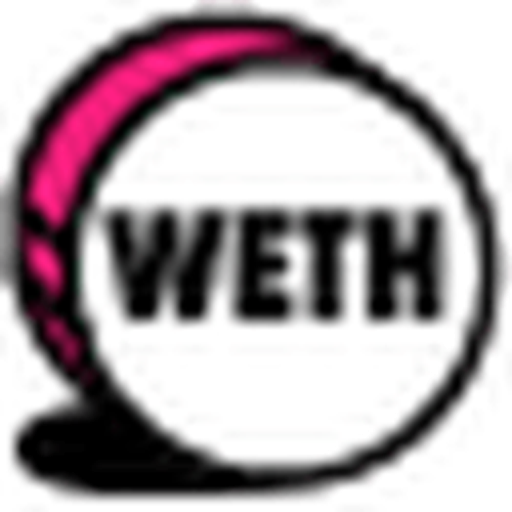Solana vs WETH – Price, Market Cap & Performance Compared
Which coin performs better – Solana or WETH?
We compare the current price (211.95 $ vs 4 158.08 $), market cap (115 139 188 576 vs 10 154 971 980) and all-time high (293.31 vs 4 950.08).
Find out which one stands out right now!
Solana is currently trading at 211.95 $, while WETH stands at 4 158.08 $. These cryptocurrencies differ not only in price but also in market presence.
The market cap of Solana is around 115 139 188 576, and WETH has about 10 154 971 980. Their respective all-time highs are 293.31 for Solana and 4 950.08 for WETH.
Daily trading volume and the 24h price change (-1.06296 % vs -0.17268 %) also offer key insights.
Compare all metrics now and see which coin fits your investment strategy best!
Solana
Solana is an advanced blockchain platform that has quickly gained traction due to its high-speed and low-cost transactions. Its architecture is designed to handle thousands of transactions per second, which positions it as a strong competitor in the decentralized finance space. As developers continue to build on its network, Solana is poised to support a diverse range of applications, making it a significant player in the cryptocurrency ecosystem.
more informationWETH
WETH, or Wrapped Ether, allows Ethereum's native currency, Ether, to be compatible with Ethereum-based decentralized applications by being ERC-20 compliant. It essentially acts as a bridge between traditional Ether and the growing realm of DeFi and smart contracts. This wrapping provides flexibility and utility, facilitating seamless transactions and interactions within the Ethereum ecosystem.
more information

|

|
|
|
|
General Information |
|
|---|---|
|
Title
Solana
|
Title
WETH
|
|
Symbol
sol
|
Symbol
weth
|
|
Whitepaper
-
|
Whitepaper
-
|
|
Website
|
Website
|
|
Community
-
|
Community
-
|
|
Last Updated
2025-09-24 23:29
|
Last Updated
2025-09-24 23:29
|
Price Data |
|
|---|---|
|
Current Price $
211.95 $
|
Current Price $
4 158.08 $
|
|
High 24h
216.29 $
|
High 24h
4 206.66 $
|
|
Low 24h
206.33 $
|
Low 24h
4 106.1 $
|
|
Price Change 24h
-2.27718 $
|
Price Change 24h
-7.19256 $
|
|
Price Change % 24h
-1.06296 %
|
Price Change % 24h
-0.17268 %
|
Market Data |
|
|---|---|
|
Market Cap
115 139 188 576
|
Market Cap
10 154 971 980
|
|
Total Volume
8 426 373 441
|
Total Volume
394 390 088
|
|
Market Cap Change 24h
-1 726 644 361
|
Market Cap Change 24h
48 712 269
|
|
Market Cap Change % 24h
-1.47746 %
|
Market Cap Change % 24h
0.482 %
|
|
Return on Investment (ROI)
-
|
Return on Investment (ROI)
-
|
Supply and Availability |
|
|---|---|
|
Circulating Supply
543 390 185
|
Circulating Supply
2 443 636
|
|
Total Supply
610 459 596
|
Total Supply
2 443 636
|
|
Max Supply
-
|
Max Supply
-
|
Historical Data |
|
|---|---|
|
All Time High (ATH)
293.31
|
All Time High (ATH)
4 950.08
|
|
ATH Change %
-27.78745 %
|
ATH Change %
-15.97197 %
|
|
ATH Date
2025-01-19 11:15
|
ATH Date
2025-08-24 19:28
|
|
All Time Low (ATL)
0.50080
|
All Time Low (ATL)
82.1
|
|
ATL Change %
42 194 %
|
ATL Change %
4 966.1142 %
|
|
ATL Date
2020-05-11 19:35
|
ATL Date
2018-12-15 00:00
|
Solana
The Rise of Solana: A Deep Dive into the Blockchain Superstar
Solana (SOL) has emerged as one of the most prominent blockchain platforms in recent years, showcasing impressive growth and technological advancements. Known for its high-speed transactions and low fees, Solana has become a favorite among developers and investors alike. This article aims to explore the unique features of Solana, its historical performance, as well as its future prospects.
Key Features Setting Solana Apart
Solana's key selling point is its ability to process transactions at lightning speed compared to other blockchains. It utilizes a unique consensus mechanism known as Proof of History (PoH), which enables the network to handle thousands of transactions per second (TPS), a feat unmatched by many other blockchains. This innovation allows for scalability without compromising on speed or cost, making Solana an attractive option for decentralized applications (DApps) and decentralized finance (DeFi) projects. Additionally, the low fee structure further enhances its appeal in the crypto space.
Advantages of Solana
One of the main advantages of Solana is its scalability. As the demand for blockchain technology grows, the need for scalable solutions becomes more critical. Solana's architecture allows for rapid scaling, positioning it as a robust platform for future expansion. Furthermore, Solana boasts an active developer community that continuously contributes to its ecosystem, resulting in a diverse range of applications and services being built on the network. The high throughput and low transaction costs make it an ideal environment for developers, encouraging innovation across various sectors.
Challenges and Criticisms
No technology comes without its set of challenges, and Solana is no exception. One of the criticism often aimed at Solana is its level of decentralization. Critics argue that the network's reliance on a limited set of validators potentially undermines its decentralized ethos. Additionally, like other emerging technologies, Solana faced network outages in the past, raising concerns about its reliability and stability during high-stress periods of network activity.
A Look Back: Solana's Historical Performance
Solana's journey began in 2020 when it was introduced to the crypto world. Its price hit an all-time low (ATL) of $0.500801 in May 2020. The blockchain quickly garnered attention, and by November 2021, it reached an all-time high (ATH) of $259.96. Solana's price movements during these years reflect the broader market sentiment and growing interest in scalable blockchain solutions. Despite experiencing significant market volatility, including a notable price correction from its ATH, Solana has maintained a strong market presence.
Future Prospects of Solana
As we look to the future, Solana's prospects seem promising. Its growing ecosystem, coupled with continuous technological improvements, positions it well to capture a significant share of the blockchain market. The platform's focus on scalability and efficiency will likely drive more developers and projects to choose Solana as their preferred blockchain network. Furthermore, ongoing partnerships and integrations suggest a positive trajectory for Solana, allowing it to compete with other major blockchains in the years to come.
In conclusion, Solana represents a significant development in the crypto landscape, distinguished by its speed, scalability, and low-cost transactions. While the network faces inherent challenges that accompany any young and rapidly growing technology, the potential for innovation and adoption remains substantial. As Solana continues to evolve, it will undoubtedly be a crypto story worth following closely.
WETH
Understanding WETH: An Introduction
Wrapped Ether (WETH) is a critical component of the Ethereum ecosystem—an ERC-20 token that enables Ether (ETH) to be traded directly with other ERC-20 tokens. This conversion is crucial for facilitating decentralized applications (dApps) and decentralized finance (DeFi) operations within the Ethereum network. By creating WETH, users can overcome the limitations of ETH, which is not ERC-20 compliant and thus cannot interact seamlessly with Ethereum-based protocols.
The Evolution of WETH in the Cryptocurrency Market
Since its creation, WETH has developed steadily, gaining broader acceptance as the Ethereum network expanded. Initially, WETH was introduced to enable developers and users to engage with smart contracts without requiring custom conversion code for ETH. Its prominence grew significantly alongside the rise of DeFi platforms, which rely heavily on ERC-20 tokens for creating liquidity pools, lending, and yield farming.
Historically, WETH experienced substantial price volatility, paralleling ETH's price trajectory due to its inherent connection as a wrapped token. In November 2021, WETH reached an all-time high of $4799.89, driven by a bullish market and increased interest in Ethereum's potential. However, like many others in the crypto sphere, it has since seen substantial dips, trading as low as around $82.1 in December 2018, representing a significant fluctuation influenced by broader market tides.
Advantages of Using WETH
One of the main advantages of WETH is its compatibility with the ERC-20 standard, making it indispensable for interacting with the myriad DeFi protocols and dApps built on Ethereum. This interoperability ensures that users can leverage their holdings in ETH without needing to liquidate or convert them into fiat or other cryptocurrencies.
Additionally, WETH supports seamless decentralization, allowing users to engage in complex financial operations such as creating liquidity pools, decentralized exchanges (DEXs), and automated market makers (AMMs). This functionality makes WETH an integral part of the DeFi ecosystem, enabling users to generate passive income through staking or providing liquidity.
Potential Downsides of WETH
Despite its advantages, WETH is not without its challenges. The primary concern is its reliance on the Ethereum network, which has faced scalability issues, resulting in high transaction fees and slower processing times during peak periods. These issues could potentially hinder the usability of WETH, especially for small transactions in a crowded market.
Moreover, the process of wrapping and unwrapping ETH into WETH, while straightforward, can be perceived as an additional step that introduces complexity and potential risk of errors or security vulnerabilities if not handled correctly.
Future Prospects for WETH
Looking ahead, the future of WETH seems firmly intertwined with the evolution of the Ethereum network. As Ethereum transitions to Ethereum 2.0, expected improvements in scalability, speed, and fees might enhance the utility and popularity of WETH further. The increasing adoption of blockchain technology in diverse industries could also lead to broader application and integration of WETH.
However, the cryptocurrency market remains highly volatile, and WETH's value, like other altcoins, is subject to market sentiments and regulatory developments. Ensuring compatibility with new upgrades and maintaining security will be crucial for WETH’s sustained relevance and growth.
In conclusion, WETH continues to be an essential bridge within Ethereum's ecosystem, facilitating seamless interactions with ERC-20 tokens. Its development and acceptance seem promising, especially with the anticipated advancements in Ethereum. Nevertheless, potential investors should stay informed and exercise caution, keeping an eye on market trends and technological advancements. For those looking to engage with DeFi and Ethereum dApps, WETH remains a robust option worth considering.

